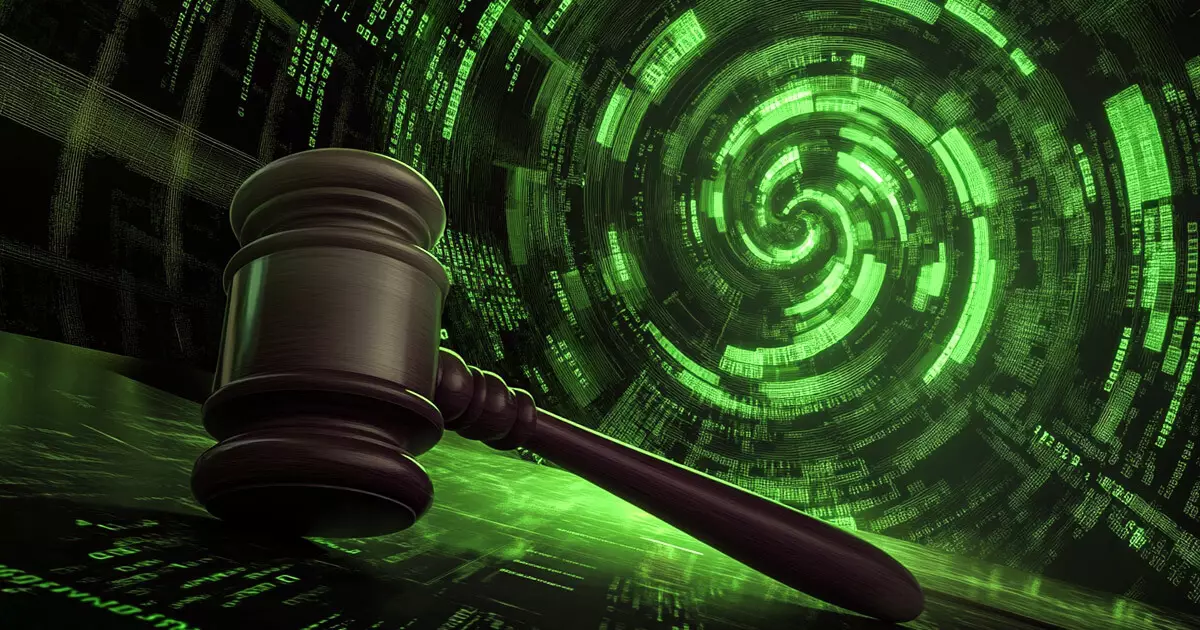The recent ruling by Judge Katherine Polk Failla in the Southern District of New York has sent shockwaves through the cryptocurrency industry, particularly concerning the use and regulation of decentralized protocols like Tornado Cash. The court’s decision on September 26 determined that software code, even when used within crypto frameworks, does not qualify for First Amendment protections typically afforded to free speech. This landmark ruling sets a pivotal precedent within the rapidly evolving landscape of cryptocurrencies, highlighting the tensions between innovation and regulatory compliance.
The case revolved around Tornado Cash developer Roman Storm, who argued that his role in creating the protocol should be shielded by free speech protections. Storm faces serious charges, including money laundering and operating an unlicensed money-transmitting business. His defense was built upon the notion that, like other forms of expression, the code behind Tornado Cash represents a protected form of communication. However, Judge Failla dismissed this assertion, drawing a clear line between the expressive power of code and its application for facilitating financial transactions. This differentiation marks a significant judicial stance that could undermine future defenses mounted by developers when confronted with regulatory accusations.
For both the industry and legal experts, this ruling is a stark reminder that the existing legal frameworks may not fully grasp the nuances of decentralized financial systems. Typically, the First Amendment extends its protections to various forms of speech, but the judge emphasized that operationalizing code to facilitate the transfer of funds falls outside these protections—invoking the implications of the Bank Secrecy Act (BSA) in the process.
Another crucial aspect of the ruling is the classification of decentralized protocols like Tornado Cash as “money transmitters.” Traditionally, money transmission laws have focused on entities that possess control over the funds being transmitted. However, Judge Failla’s interpretation suggests that the lack of direct control does not exempt such entities from regulatory scrutiny. Essentially, this broadens the scope of who can be considered a money transmitter, potentially enveloping a wide range of blockchain technologies under stringent regulatory requirements.
This development is particularly alarming for creators of decentralized finance (DeFi) protocols, who may now face the dual specter of criminal liabilities while also being tasked with navigating an increasingly complex regulatory landscape. The implications of the ruling may restrict innovation within the blockchain space by creating an environment where developers are hesitant to create without fear of extensive legal repercussions.
The reaction from the cryptocurrency community has been fierce. Legal professionals and advocates for crypto innovation have voiced deep concerns over the potential ramifications of this ruling. Amanda Tuminelli, chief legal officer of the DeFi Education Fund, warned that the decision could drastically reshape developer accountability and stifle creativity in software development. This sentiment is echoed by other industry leaders like Jake Chervinsky, who characterized the ruling as a significant threat to the freedoms of software developers. Their concerns resonate with a wider struggle within the industry as participants grapple with ensuring legal compliance while striving for technological advancement.
As Storm’s trial is set to begin on December 2, the outcome is expected to unleash a barrage of appeals that could further clarify how software developers are held accountable under United States laws. The ruling serves as a critical juncture for policymakers, regulators, and industry stakeholders, compelling all parties to engage in discussions about how existing financial regulations align with the rapidly evolving nature of cryptocurrencies and blockchain technologies.
The implications of Judge Failla’s ruling extend far beyond Tornado Cash and its developers; it embodies the larger struggle faced by the cryptocurrency sector as it seeks to define its identity against a backdrop of regulatory oversight. As lawmakers and regulators continue to grapple with existing financial laws, there is a pressing need for updated frameworks that provide clarity and adaptability for emerging technologies. The crossroads of innovation and law requires thoughtful engagement, lest the enthusiasm for breakthrough technologies be curtailed by fear of regulatory retribution. Ultimately, stakeholders must collaborate to forge a path that upholds both the spirit of innovation and the principles of justice.

